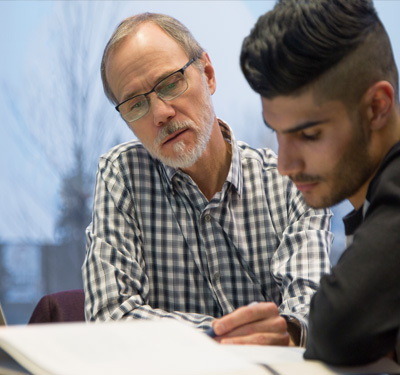Keeping Qatar’s students in school
Mismanaged student advising in Qatar universities is negatively affecting student experiences.
Published online 29 October 2016

Qatari students may be in need of more guidance to be better prepared for the rapidly changing needs of the workplace.
Hero Images/ Getty Images
One of the largest challenges facing university students in Qatar is a lack or mismanagement of academic advising, both pre-university and in their early university years, reports a study published in the Near and Middle Eastern Journal of Research in Education.
The study, led by psychologist Batoul Khalifa from Qatar University, reports on the results of in depth interviews with 35 students at Qatar’s National Public University, and at selected US and European branch universities in Education City. The study aimed to understand the perceptions, beliefs, outlook, decisions, and experiences of Qatari university students.
Qatar’s rapid economic growth in recent years has created a major gap between the demand for skilled labour and the supply of Qatari graduates entering the workforce. According to the 2011 Qatar National Development Strategy, the country’s acute requirements for highly educated and skilled Qatari nationals lie in the areas of health and biomedical sciences, engineering, energy and environment, and computer and information technology. But there is a dearth of research investigating the factors that impact student experiences in the country and whether they complete their university studies.
“Thematic analysis reveals that student advising was absent or mismanaged in many Qatari institutions,” says Khalifa. “The students felt that primary and secondary schools did not prepare them well enough for post-secondary education and that English preparatory curricula or university foundation programs more often acted as a barrier to their continuation in higher education,” she says.
The study’s findings suggest the importance of providing advising and academic support to familiarize students with what is expected of them, the researchers conclude. Khalifa adds, “It is important for freshmen to ask for guidance and help in preparing their schedule and for them to follow up with academic advisors.” Additional support could be provided by family, members of the general student body, university faculty and administrators, she adds. The study also emphasizes that the more students feel connected with university life, through co-curricular or extra-curricular activities and interaction with faculty, for example, the more they will engage in it.
Large numbers of Qatari students come from Arabic public schools, whereas many university programs are taught in English, causing language to becoming an impediment to persistence in higher education. Even when language is not an issue, many students are still not prepared to face the required cognitive and affective demands of higher learning, write the researchers. To one extent or another, say the researchers, post-secondary institutions are guided by a Western liberal arts perspective that emphasizes dialogue, discussion, debate and questioning conventional wisdom. Instructional philosophies in schools, however, are based on unquestioningly receiving the wisdom passed to them by their teachers. This can hinder Qatari students from being prepared for and succeeding in post-secondary studies, particularly when enrolling in institutions that follow an American-styled curriculum.
“This project lays the groundwork for future research and for the development of interventions and other mechanisms to support Qatari students’ post-secondary success,” says Khalifa.
Reference
- Khalifa, B., Nasser, R., Ikhlef, A., Walker, J. S., Amali, S. A qualitative study of student attitudes, perceptions, beliefs, outlook and context in Qatar: Persistence in higher education. Near and Middle Eastern Journal of Research in Education. | article
DOI: 10.1038/qsh.2016.136

